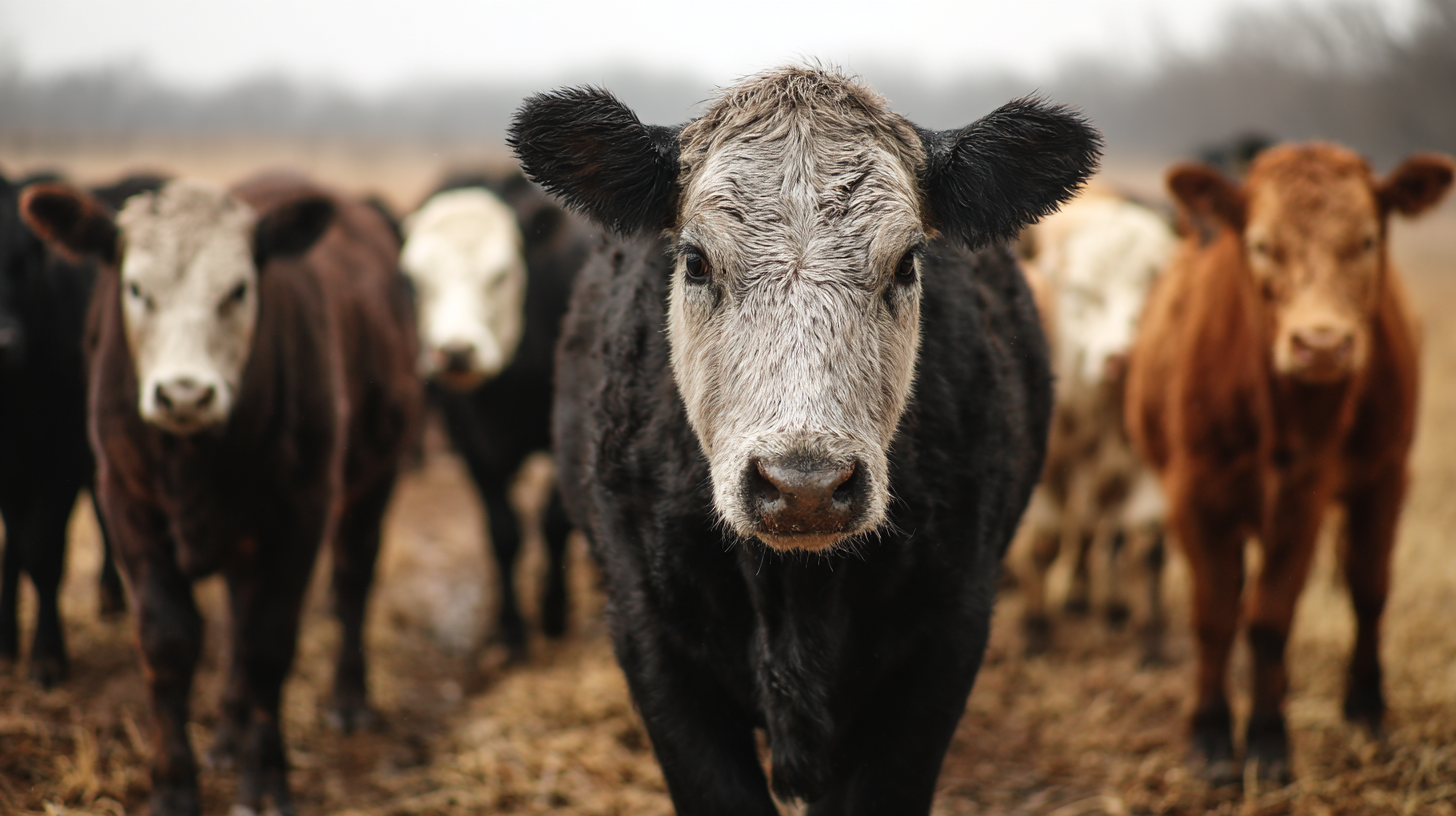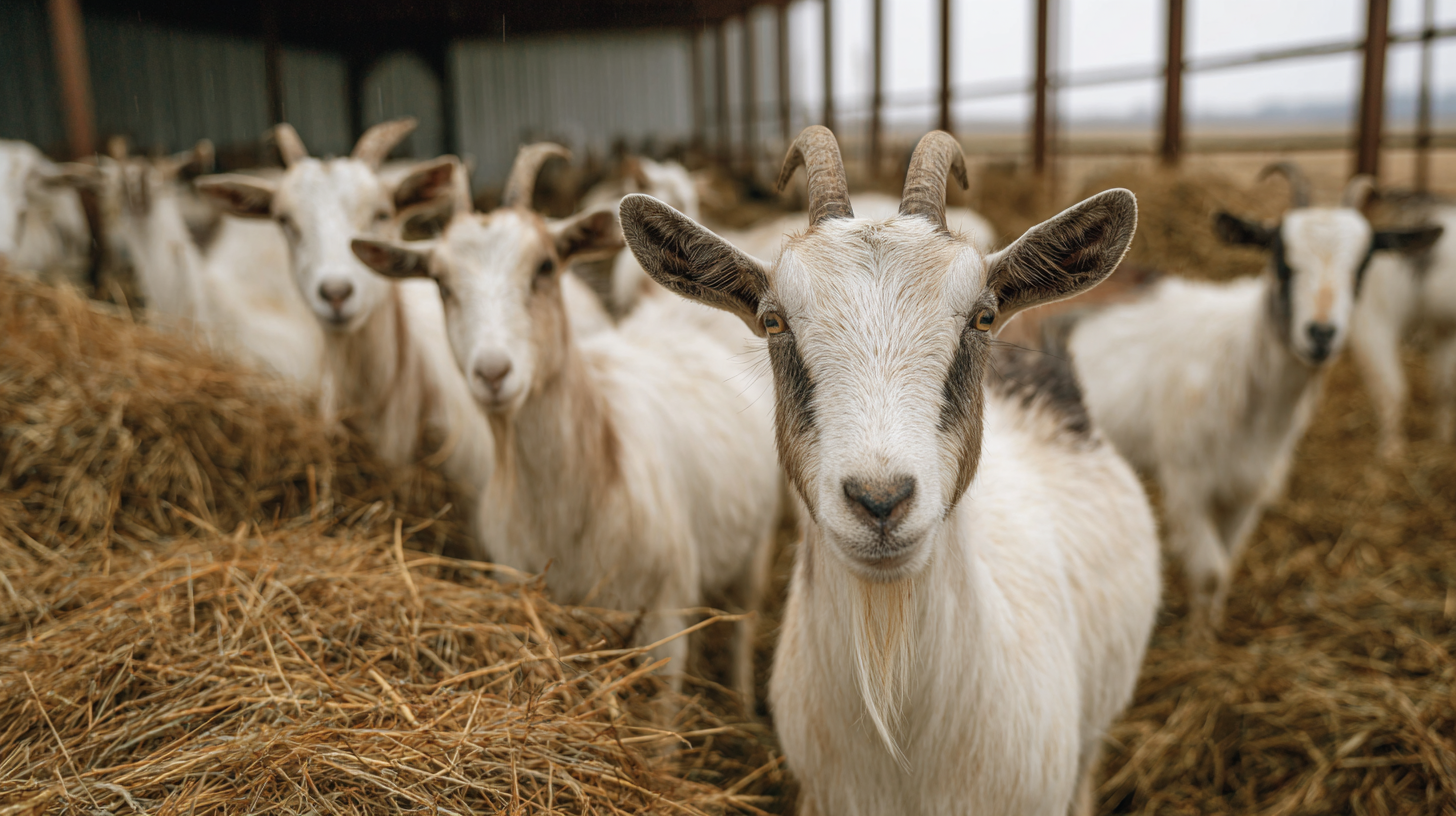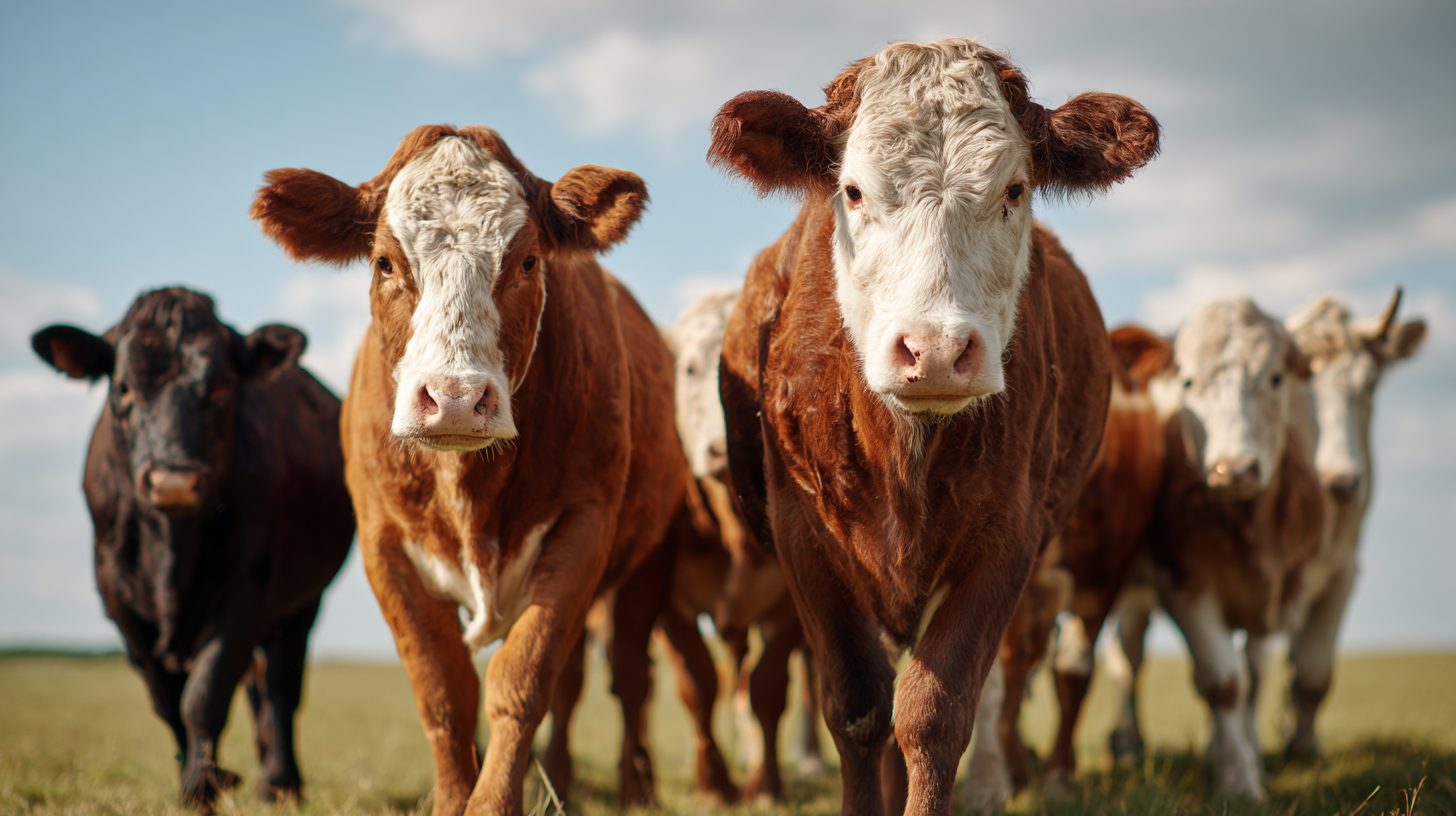In the quest to promote livestock health, farmers and veterinarians continually seek effective solutions that provide robust benefits without compromising animal welfare. One such solution is Decoquinate Deccox, a proven medication used in the prevention and treatment of coccidiosis in livestock. As we look ahead to 2025, it’s essential to understand how this potent compound can enhance the health of various farm animals while ensuring optimal productivity.

Decoquinate Deccox not only targets the detrimental effects of coccidiosis but also supports overall wellbeing in livestock, leading to healthier herds and flocks. With its long-standing efficacy and safety profile, it has earned a significant place in the livestock industry. This article will explore the top five benefits of Decoquinate Deccox, highlighting its importance in modern-day animal husbandry and its potential to transform livestock health management practices. By focusing on these critical advantages, we aim to equip farmers with the knowledge they need to make informed decisions that foster both animal welfare and farm profitability.
Decoquinate is increasingly recognized as a key component in livestock health management, particularly in the prevention of coccidiosis and other parasitic infections. According to a 2023 report from Agrifood Research, using Decoquinate in poultry and ruminants has been linked to a 30% reduction in coccidial outbreaks. This is significant, considering that coccidiosis can lead to severe gastrointestinal distress and can decrease growth rates by as much as 20%, directly impacting farm profitability.
Additionally, Decoquinate contributes to improved feed efficiency. Studies published in the Journal of Animal Science indicate that livestock treated with Decoquinate showed a 15% increase in feed conversion ratios compared to untreated counterparts. This enhancement in feed efficiency not only supports better growth rates but also helps in minimizing feed costs, which are a major concern for livestock producers. With these benefits, Decoquinate establishes itself as a vital tool in promoting overall livestock health, providing farmers with a reliable strategy for managing their animals' well-being effectively.

Decoquinate, known for its effectiveness in controlling and preventing coccidiosis in livestock, plays a vital role in enhancing animal health and productivity. According to the latest studies, implementing Decoquinate in feed formulations has been shown to reduce the incidence of gastrointestinal parasites by over 40%, thereby minimizing illness and improving growth rates. As livestock producers continue to face challenges related to parasitic infections, Decoquinate offers a reliable solution that promotes overall herd health.
Implementing Decoquinate not only reduces the need for more aggressive treatments, but it also contributes to better feed conversion rates. Research indicates that animals receiving Decoquinate may exhibit a 15-20% increase in feed efficiency when compared to those not treated. This is particularly important for meat and dairy producers seeking to optimize their operations while maintaining the health of their livestock.
**Tip:** To maximize the benefits of Decoquinate, consider integrating it into the feed regimen early, ideally during the pre-weaning phase. Monitoring the health and weight gain of livestock regularly can provide crucial data to assess the impact of Decoquinate on your herds. Always consult with a veterinarian for tailored advice on dosage and timing.
| Benefit | Description | Efficacy Rate (%) | Application Period (Days) |
|---|---|---|---|
| Parasite Control | Effectively reduces parasite load in livestock. | 90 | 28 |
| Improved Weight Gain | Increased weight gain in treated animals compared to untreated. | 15 | 30 |
| Reduced Mortality Rates | Decreases mortality rates among livestock due to parasites. | 75 | 60 |
| Cost Efficiency | Reduces overall treatment and feed costs. | 20 | N/A |
| Enhanced Immunity | Strengthens the immune system in livestock. | 80 | N/A |
Decoquinate, a proven medication in livestock management, plays a significant role in enhancing weight gain and feed efficiency. As livestock producers aim to optimize growth in a competitive market, integrating Decoquinate into feeding regimens can lead to substantial improvements. This compound helps inhibit the development of protozoa in the gut, thus reducing competition for nutrients and allowing the animals to absorb more energy from their feed.
With improved feed efficiency, farmers can expect quicker weight gain in their livestock, translating to better economic outcomes. By minimizing feed waste and maximizing nutrient absorption, Decoquinate allows producers to lower their overall feed costs while achieving desired weight targets. Furthermore, healthier livestock grown with Decoquinate can lead to better meat quality, offering significant advantages in marketability. Implementing Decoquinate not only promotes the welfare of the animals but also supports the sustainability of livestock operations by fostering efficient resource use.

Decoquinate is an effective coccidiostat that plays a crucial role in enhancing livestock health by significantly reducing disease incidence. Coccidiosis, a common parasitic disease in livestock, can lead to severe economic losses due to decreased performance and increased mortality. By incorporating decoquinate into the feeding regimen, farmers can minimize the risk of outbreaks and maintain optimal growth rates in their herds.
Tips for optimizing the use of decoquinate include ensuring that the dosage is accurate and consistent throughout the feeding period. Additionally, regular monitoring of livestock health can help identify any early signs of illness, allowing for quicker interventions if needed. It’s essential to consult with a veterinary professional to tailor the treatment to the specific needs of your livestock and to create a preventative health plan that incorporates other management practices.
Another effective strategy is to integrate decoquinate with good biosecurity measures within the livestock operation. Maintaining clean living environments, controlling the movement of animals, and ensuring proper nutrition can synergistically enhance the efficacy of decoquinate treatments. By taking a holistic approach to livestock health management, farmers can reduce disease incidence and promote a thriving farming enterprise.
Decoquinate is gaining recognition in animal husbandry for its proven efficacy and safety profile. As a vital coccidiostat, it effectively controls coccidiosis, a parasitic disease affecting livestock, particularly poultry and ruminants. By using Decoquinate, farmers can ensure that their animals remain healthy, as it helps in reducing the incidence of disease, improving feed efficiency, and ultimately enhancing overall production. This safety assurance makes it a preferred choice in many livestock operations.
When incorporating Decoquinate into your livestock management practices, consider these tips: First, always adhere to the recommended dosage guidelines to maximize benefits while ensuring safety. Second, monitor your animals regularly for any signs of illness or stress, as early detection can optimize treatment outcomes. Lastly, integrate Decoquinate use with good husbandry practices, such as maintaining clean living environments and proper nutrition, to boost your livestock’s immune response and health further.
Utilizing Decoquinate not only promotes better animal health but also supports sustainable farming practices. With a solid safety record, it is a reliable option for livestock producers committed to maintaining the well-being of their animals while ensuring high productivity.
This chart illustrates the significant benefits of using Decoquinate in livestock management, highlighting its proven efficacy in reducing coccidiosis and improving overall animal health.
